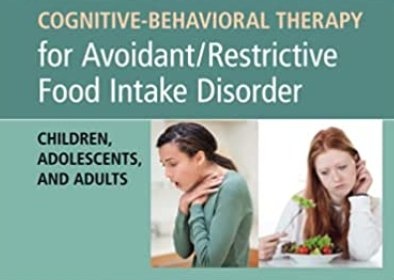“Our case report highlights the importance of a thorough history, including inquiring about past infections and investigations to look for autoimmune and infectious etiologies, including ASO and positive DNAse B titers, in adult patients with new onset movement disorders and no other identifiable etiology and risk factors. Further research is mandatory to investigate the incidence of movement disorders in the adult population after a streptococcal infection and the diagnostic approach and treatment modalities needed to manage such patients.”
Posts found in:
Adult

Elise’s Story: PANS/PANDAS treatment after a 15+ year diagnostic delay
Elise shared the story below on her PANS/PANDAS journey at the IOCDF Conference in 2024 as part of the panel “PANS & PANDAS: What is it, What to Look For,...
Young adults’ experiences of living with paediatric acute-onset neuropsychiatric syndrome. An interview study
- Young adults living fairly isolated lives, dependent on care from relatives.
- The illness was a tangible presence.
- They perceived a lack of knowledge among healthcare staff on PANS in healthcare, and negative consequences linked to this. Their experience-based knowledge of their own illness is devalued in healthcare encounters.
- A feeling of being pushed around in healthcare, without anyone taking responsibility for the treatment
- Emphasized the need for increased knowledge among staff to identify PANS and be able to offer effective treatment.
Therapeutic plasma exchange in adolescent and adult patients with autoimmune neuropsychiatric disorders associated with streptococcal infections
Therapeutic plasma exchange (TPE) has been recommended to remove relevant antibodies and treat symptomatic presentations in children and adolescents, but there are no studies that evaluate the use of TPE in patients who are diagnosed later in life. It is therefore unclear if using an accepted treatment for pediatric PANS/PANDAS patients would be beneficial in adults with prolonged PANDAS/PANS symptomatic histories. This study investigated 16 late adolescent and adult PANDAS/PANS patients’ responses to TPE. Improvement was noted in over half of the patients with available follow-up information.
Group A Beta-Hemolytic Streptococcus-Induced Tic-Like Movement Disorder in an Adult: A Case Report
Ilyas U, Umar Z, Lin D (August 26, 2022) Group A Beta-Hemolytic Streptococcus-Induced Tic-Like Movement Disorder in an Adult: A Case Report. Cureus 14(8): e28451. doi:10.7759/cureus.28451
PANDAS in an Adult?: A Case Report
PANDAS in an Adult?: A Case Report. Deshmukh RP, Mane AB, Singh S.Ind J Priv Psychiatry 2022; 16 (1):44-45. DOI: 10.5005/jp-journals-10067-0104
“We report a case in order to suggest that we should be alert while assessing OCD in young patients, as it might be secondary to streptococcal infection. This has therapeutic implications. Trials of immunomodulator therapy can be given as suggested in a few kinds of literature. Although still experimental, it may have potential for the future, especially in those not responding to conventional treatment… This report might suggest that PANDAS-like syndrome may occur in adults also. We should be cautious of this syndrome during treatment.”
Antistreptolysin-O Titers: Implications for Adult PANDAS
Letter to the Edito. Antistreptolysin-O Titers: Implications for Adult PANDAS. ANDREW J. CHURCH, B.SC., and RUSSELL C. DALE, M.B.CH.B., M.R.C.P., London, U.K. Published Online:1 Feb 2002. https://doi.org/10.1176/appi.ajp.159.2.320
To the Editor: A diagnosis of pediatric autoimmune neuropsychiatric disorders associated with streptococcal infections (PANDAS) is made when neuropsychiatric disease is precipitated by streptococcal infection (1). Antistreptolysin-O titers are an important tool for diagnosing recent streptococcal infection in patients with Sydenham’s chorea and PANDAS, since throat cultures are usually negative because of the latent onset of the neuropsychiatric disease. The upper limit for normal antistreptolysin-O titers is 200 IU/ml in children, but no normal upper limit exists for healthy adults. We propose that an antistreptolysin-O titer of 270 IU/ml is the significant upper limit for healthy adults. This finding will aid in the investigation and diagnosis of new cases of adult PANDAS.
Plasmapheresis, Rituximab, and Ceftriaxone Provided Lasting Improvement for a 27-Year-Old Adult Male with Pediatric Autoimmune Neuropsychiatric Disorders Associated with Streptococcal Infections (PANDAS)
A Krouse, H Li, JA Krenzer, WN Rose. Plasmapheresis, Rituximab, and Ceftriaxone Provided Lasting Improvement for a 27-Year-Old Adult Male with PANDAS. Dept of Pathology, University of Wisconsin Hospital. Article
- At 17 – developed sudden psychosis and confusion after GAS infection. Had elevated anti-streptolysin O (ASO) titers. Did not present with typical symptoms of PANDAS – OCD and/or tic-like symptoms were not observed. A tentative diagnosis of PANDAS was given. Treated with antipsychotics, antibiotics, tonsillectomy, and IVIG which resulted in remissions and relapses of his neuropsychiatric symptoms.
- At age 27 – received a trial of therapeutic plasma exchange (TPE), rituximab, and ceftriaxone. Eventually resulted in sustained benefit and minimal fluctuations of his clinical symptoms.

Cognitive-Behavioral Therapy for Avoidant/Restrictive Food Intake Disorder (Children, Adolescents, and Adults)
by Jennifer J. Thomas Avoidant/restrictive food intake disorder (ARFID) is a common eating disorder diagnosis that describes children and adults who cannot meet their nutritional needs, typically...

Finding PANS PANDAS Treatment as an Adult
I am proud of my journey. It made me the person I am today. I still have a while until recovery, but my progress is enough to motivate me to keep...

Why it’s So Hard to Get a Diagnosis of PANS and/or PANDAS
I’ve been talking a lot recently about my experience of having Paediatric Acute-Onset Neuropsychiatric Syndrome (an illness which, despite its name, affects adults too), and how I was undiagnosed...
Inflammation in the Neurocircuitry of Obsessive-Compulsive Disorder
Sophia Attwells, HBS; Elaine Setiawan, PhD; Alan A. Wilson, PhD, Pablo M. Rusjan, PhD; Romina Mizrahi, MD, PhD, FRCP(C); Laura Miler, HBS; Cynthia Xu, MD; Margaret Anne Richter, MD, FRCP(C); Alan Kahn, MD, FRCP(C); Stephen J. Kish, PhD; Sylvain Houle, MD, PhD, FRCP(C); Lakshmi Ravindran, MD, FRCP(C); Jeffrey H. Meyer, MD, PhD, FRCP(C)
JAMA Psychiatry 2017
The regional distribution of elevated TSPO VT argues that the autoimmune/neuroinflammatory theories of OCD should extend beyond the basal ganglia to include the cortico-striato-thalamo-cortical circuit. Immunomodulatory therapies should be investigated in adult OCD, rather than solely childhood OCD, particularly in cases with prominent distress when preventing compulsions.
Mental Health News Article
Brain Behavior Research Foundation Article
